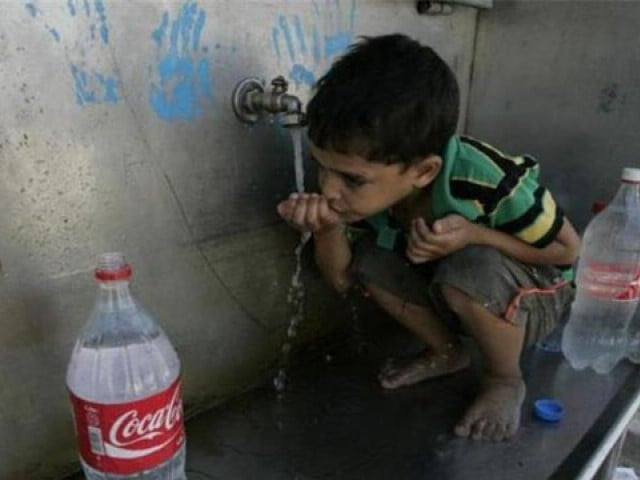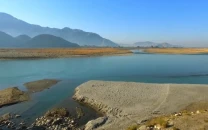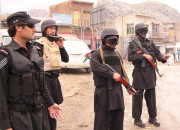HEC proposes task force to formulate water policy in Balochistan
Panel to comprise VCs and water experts, to be assisted by technical committee

Representational image. PHOTO: AFP
This was stated by HEC Chairperson Dr Tariq Banuri while chairing a meeting at the Commission’s Secretariat on Saturday on the academia’s role in addressing water crisis in Balochistan, says a press release.
The meeting discussed the prevailing water scarcity, challenges and future opportunities regarding ground water recharge, water reservoirs, water usage efficiency, clean drinking water and water resource management. The meeting decided that a final decision will be taken in consultation with Balochistan Chief Minister Jam Kamal Khan.
On the occasion, Dr Banuri expressed deep concern over the prevailing water crisis in Balochistan and assured support from the academia. He said the Balochistan CM placed high priority on addressing the issue. He added that the HEC and universities needed to come forward to present a joint plan of action for resolving the issue.
It was decided in the meeting that the HEC would advise the Balochistan government to set up a taskforce, assisted by a technical committee, to help resolve the issue. “The taskforce will be a joint body that will help formulate water policy and execute it while the technical committee will undertake research, collect data, assess and determine research gap, and identify areas that need attention,” Dr Banuri explained.
Participants of the meeting agreed that the taskforce would comprise vice chancellors and representatives of the Centres of Excellence
and Advanced Studies in water. They suggested that the taskforce must develop Terms of Reference (ToRs) based on modalities and fea
sibility of the plan while the technical committee must undertake research and identify the areas needing attention.
The meeting participants also emphasised the need for capacity building of organisations and centres working on water resource management. They expressed concerns that of the 42,000 tube wells in Balochistan, only 450 were registered. During the course of meet
ing, representatives of various universities and Centres of Excellence in Water also highlighted their efforts for water management.
They pointed out that the surface water in Balochistan had reached an end, while the ground water was rapidly depleting. “Balochistan largely depends upon ground water and its depletion is highly alarming,” one of the representatives observed.
They also discussed the outcomes of delay-action dams concept as well as the prospects of leakage dams and other measures, including irrigation and capacity building of centres on water. Issues pertaining to droughts, disaster management, flash floods, agricultural water management, farming methods, climate change assessment, meteorology, ground water modelling and urbanisation also came under consideration.


















COMMENTS
Comments are moderated and generally will be posted if they are on-topic and not abusive.
For more information, please see our Comments FAQ